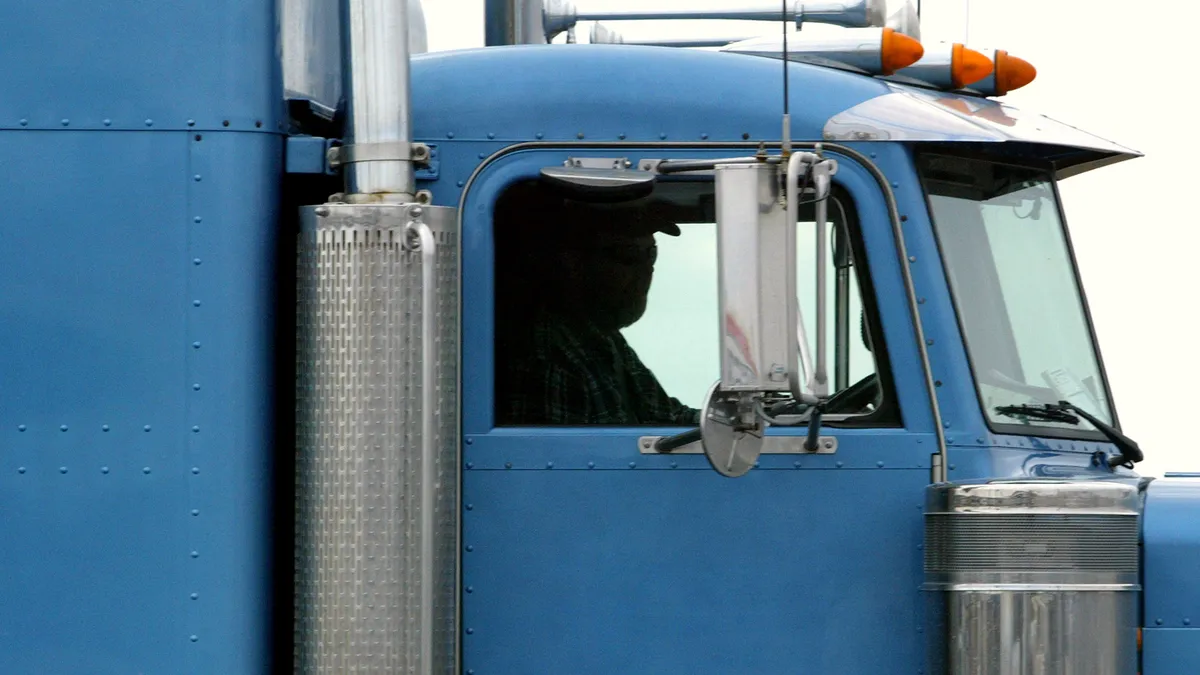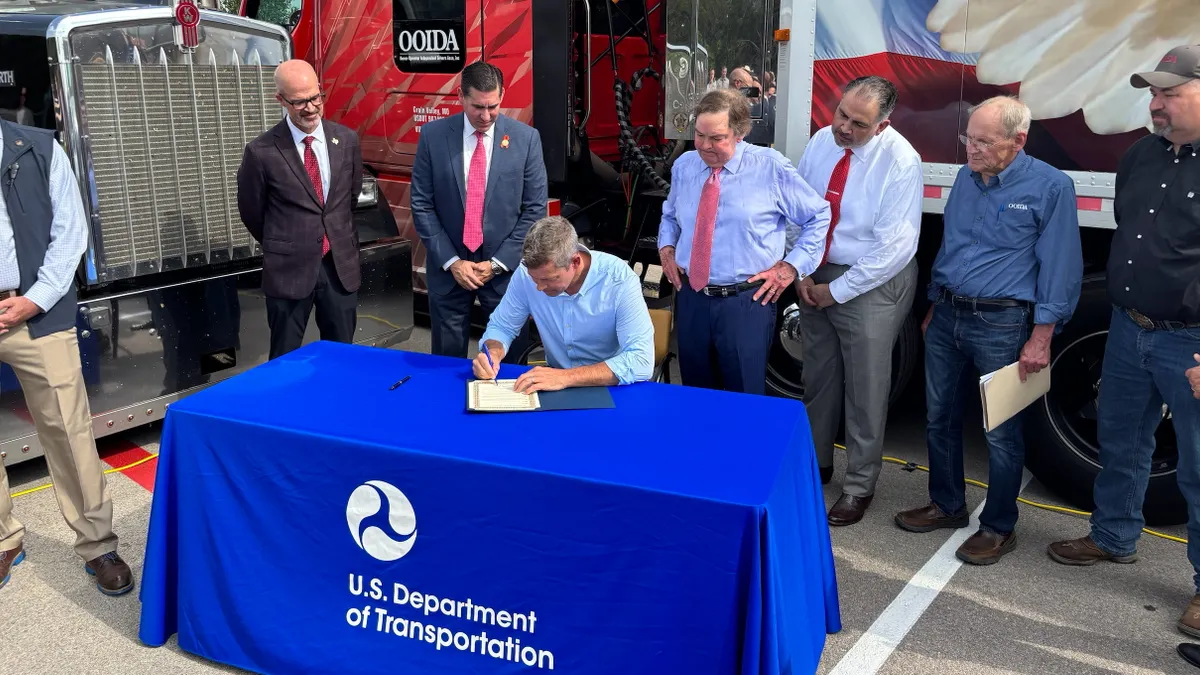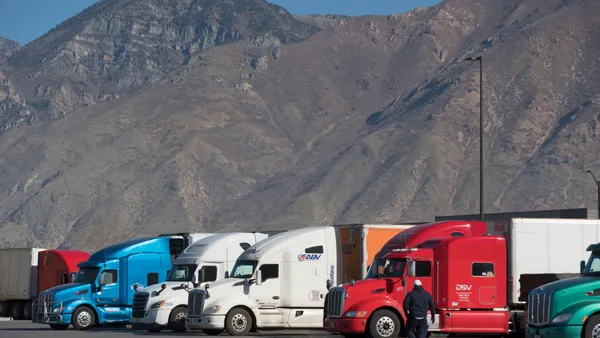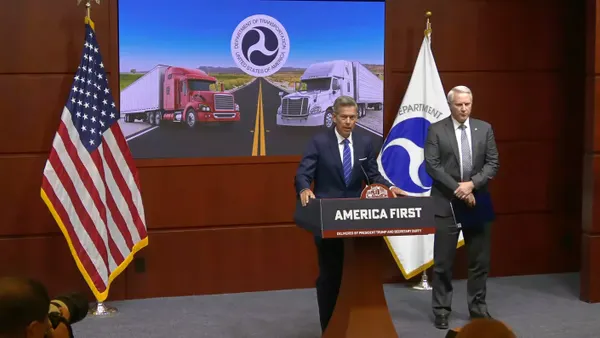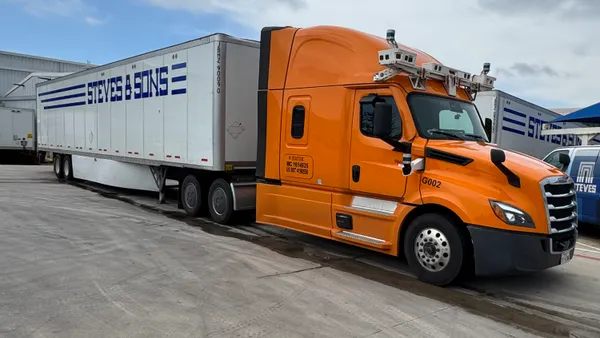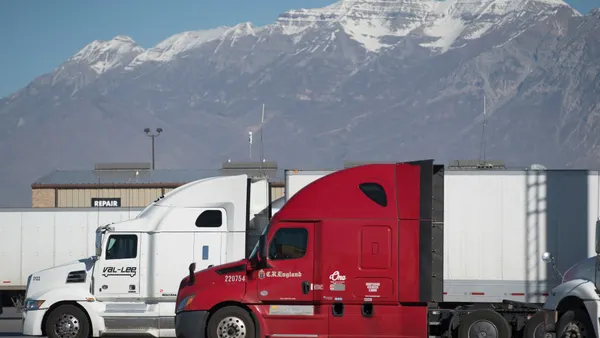Dive Brief:
- The Supreme Court on Thursday declined to hear arguments in a challenge to a California law requiring owner-operators to be classified as employees of the carriers for which they haul loads. The law will prompt a major shift in the state’s trucking landscape, and industry groups blasted the court’s move.
- The California Trucking Association, whose petition for a writ of certiorari was denied, said the state’s Assembly Bill 5 will cause “irrevocable damage” by taking tens of thousands of truck drivers off the road. “Gasoline has been poured on the fire that is our ongoing supply chain crisis,” the group said in a statement.
- Owner-Operator Independent Drivers Association President Todd Spencer said in a statement the “radical policy” would leave owner-operators in California “at the mercy of the courts to interpret how the law will be applied” to carrier contracts. OOIDA plans to participate in future challenges to the law, Spencer said.
Dive Insight:
The Supreme Court’s decision not to hear the case, CTA v. Bonta, means California’s roughly 70,000 owner-operators will no longer be allowed to run loads as independent contractors for companies whose primary function is trucking.
“We’re pleased with the court’s decision to reject this challenge to AB 5's application to the motor carrier industry,” the office of California Attorney General Rob Bonta said in a statement. “At the California Department of Justice, we’ll continue to do our part to defend laws that are designed to protect workers and ensure fair labor and business practices.”
The International Brotherhood of Teamsters touted the law’s benefits in a statement, calling the court’s move not to hear the case a victory that will expand employment protections to California truck drivers “currently misclassified as independent contractors.”
The union said it has railed for decades against misclassification of drivers as independent contractors, calling the law “landmark legislation” for the trucking industry.
“Finally, port truck drivers and so many others across California will have the opportunity to join together and earn a fair wage that allows them to support their families,” said Sean M. O’Brien, Teamsters general president, said in a statement. “These companies can no longer take advantage of workers and fill their own executive pockets with unfairly earned profits.”
The law will give owner-operators the chance to unionize as employees of the companies for which they haul, Lorena Gonzalez, who authored the law as a state legislator before joining the California Labor Federation, said in a statement.
“Misclassified truck drivers have been at the forefront of this fight for decades,” Gonzalez said. “The courts have spoken and AB 5 is the law of the land. Now it’s time for us to crack down on abusive employers and better the lives of working people.”
David Heller, Truckload Carriers Association senior vice president of safety and government affairs, said he worried about whether the law would force owner-operators out of business, exacerbating supply chain disruptions.
“Do they sit there and say, 'You know, maybe it's time I get out?'” Heller said. “And if that becomes a problem, that makes the supply chain crisis even worse today than it was yesterday."
The Supreme Court decision not to hear the case and leave AB5 in place could open the door for other states to follow California’s path, Heller said.
"This is the American dream in our industry, and it's that person that decides to go out and buy one truck and start their own business, and it certainly puts a damper on that opportunity," Heller said.




